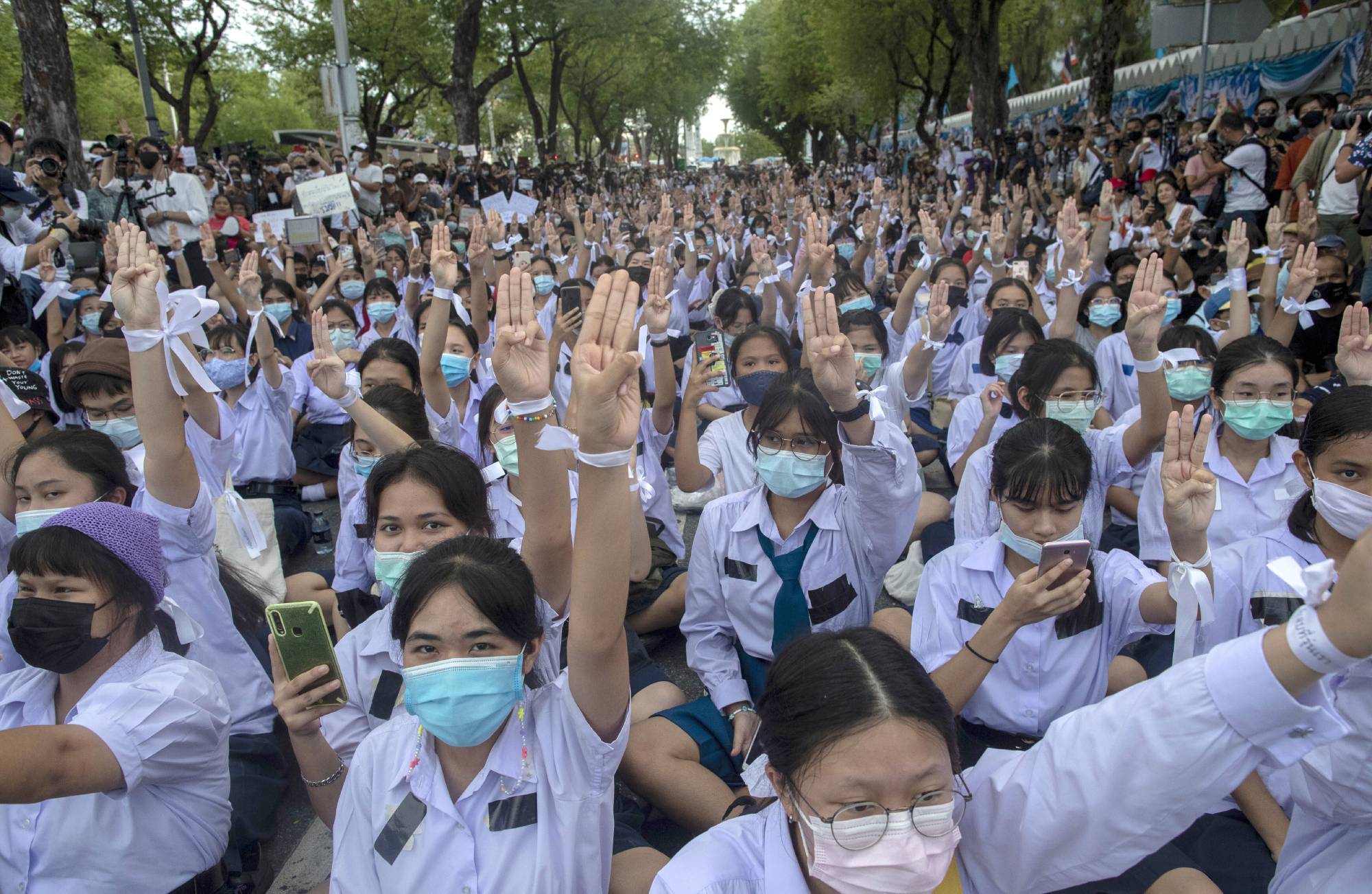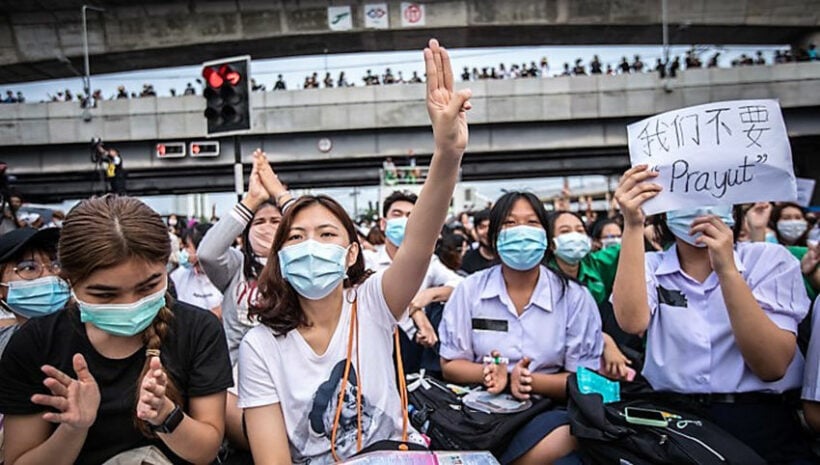News
Over 200 High School Students Facing Sedition Charges in Thailand

Amnesty International reports more than 200 high school students are facing serious criminal charges, including sedition in Thailand, for their roles in the largely peaceful pro-democracy protests that began in 2020.
At their peak in late 2020, youth-led demonstrations calling for political change and monarchy reform drew tens of thousands to Bangkok’s streets.
In a report calling for charges against the teens to be dropped, Amnesty International accused the Government of Thailand of “arresting, prosecuting, surveilling, and intimidating” child protesters.
“Children with their entire lives ahead of them now face severe consequences simply for participating in peaceful protests,” said Chanatip Tatiyakaroonwong, a researcher for Amnesty International’s regional office.
According to the human rights campaign group, nearly 300 high school students under 18 year old face criminal charges in connection with the protests, with more than 200 cases still pending. Most were accused of breaking rules imposed during the Covid-19 pandemic that restricted public gatherings.
However, at least 17 minors are facing charges of insulting the monarchy, which can result in lengthy prison sentences. Insulting the monarchy is punishable by up to 15 years in prison under Section 112 of the Criminal Code, known as the lese-majeste law.
A number of people charged with lese-majeste have been detained pending trial for months, prompting two young women to go on hunger strike in order to demand the detainees’ release on bail.
According to Thai Lawyers for Human Rights (TLHR) statistics, at least 1,888 people have faced charges related to political participation since the start of the Free Youth protests in July 2020. There are 283 children under the age of 18.
According to Amnesty International, the youngest child arrested during a protest was 11 years old, and in another case in July 2021, police reportedly used cable ties to restrain a 12-year-old.
Minors told researchers that in addition to following them, authorities had put pressure on their teachers and parents to discourage them from protesting.
“In addition to charges, some child protesters risk being disowned or abused by their own parents as a result of the pressure put on them by authorities,” Mr Chanatip said.
According to the report, this resulted in family squabbles, physical abuse, and homelessness in some cases.
Amnesty International urged Thai authorities to drop charges against peaceful child protesters, saying they should be free to protest peacefully without fear of legal repercussions.































